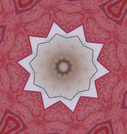
Dear Traveler,
“The nicest people get cancer” said my friend the other day. Like me she’s a nurse and a keen observer of things, so it really set me thinking.
What’s up with that?
We’re all familiar with the “type A personality”; the person who is constantly driven, the over-achiever who often becomes a cardiac patient once their relentless pace wreaks enough havoc on the heart and cardiovascular system. Similarly, one fairly recent series of studies has arrived at the theory of a “type C personality”, a profile that fits such a large percentage of cancer patients (especially in the female population) it can’t be ignored. Being “nice” is one of the main attributes, along with being self-sacrificing, experiencing more than the usual ration of trauma and grief in life, a sense of overwhelming obligation, chronic (hidden) inner conflict, and above all, a sense of helplessness regarding the ability to change one’s situation.
Just to be clear, no one is saying that this particular stellium of characteristics is going to lead to having cancer, and no one is saying that working to change them will cure cancer. What’s being postulated is this:
We all carry cancer cells in our bodies, but only some of us will get cancer.* Genetics aside, the rest have an immune system healthy enough to quell the activities of wayward cells before they can aggregate into a tumour. Those whose physical "terrain" supports the replication of cancer cells, and whose immune systems are compromised, may end up with tumours. Certain physical and emotional conditions work together to create this "cancer-hospitable" terrain.
What makes for a healthy immune system, then? The newly emerging field of psychoneuroimmunology is fascinating, and volumes have been written which address the question of "terrain". So, where does being “nice” fit in?
“Niceness” is a learned behaviour. No one is born nice. We may be born with the capacity for forgiveness, and compassion, and other inner qualities, which, if nurtured, will blossom and become part of our emerging personality. “Niceness”, on the other hand, is a veneer, and one that’s toxic to the environment of our personal ecology. It sits on the surface like a hard shell, glossing over our actions, feelings, and expressions, keeping the truth below the surface where it backs up and begins to ferment. Dishonesty predicated on “niceness”, even if kindly intended (and no matter how seemingly inconsequential), blocks the flow of life force through our bodies. If we keep this up, after a while the truth of what we feel becomes tainted and cloudy, and we’re no longer sure of our feelings. In time our “niceness” is all we have left to rely on; we’ve learned it well. But the price we pay is high: we feel an emptiness; we have ceased to be real. The fire and courage have gone out of our lives. And maybe out of our immune systems.
To take that one step further, even a person with evil intent can be nice. A pedophile can be “nice”. So is “niceness” what we really need to be reaching for if what we want is to add goodness to this world?
What I’m learning is this: we’d be better off if we forget about being nice. What the world needs is for us to be loving. Love can be expressed in myriad ways, and is the greatest medicine we have for all our ills. Compassion is real – let’s be compassionate. Gentleness is a blessing – let’s be gentle. All these qualities are real; they are not a “veneer”. They are true expressions of the goodness that is latent within us, that is inherent in our humanity and our divinity. The expression of true compassion, of true kindness, is active and fiery, not meek and self-sacrificing (ask anyone who ever met Mother Theresa.) It carries great power and can create real change, and alleviate suffering. The superficial veneer of socially-approved “niceness” is a cinder that burns up in its light.
If we begin to be truly loving, in the end we won’t have to worry about being “nice.” Loving-kindness is full of grace, and is never destructive but always healing. Love doesn’t speak with arrogance, or selfishness, or mal-intent. I guess you could say love is the nicest thing there is.
So why fake it?
With love,
rosemary
* from “Anti-Cancer: A New Way of Life” by David Servan-Schreiber, M.D., Ph.D.
“The nicest people get cancer” said my friend the other day. Like me she’s a nurse and a keen observer of things, so it really set me thinking.
What’s up with that?
We’re all familiar with the “type A personality”; the person who is constantly driven, the over-achiever who often becomes a cardiac patient once their relentless pace wreaks enough havoc on the heart and cardiovascular system. Similarly, one fairly recent series of studies has arrived at the theory of a “type C personality”, a profile that fits such a large percentage of cancer patients (especially in the female population) it can’t be ignored. Being “nice” is one of the main attributes, along with being self-sacrificing, experiencing more than the usual ration of trauma and grief in life, a sense of overwhelming obligation, chronic (hidden) inner conflict, and above all, a sense of helplessness regarding the ability to change one’s situation.
Just to be clear, no one is saying that this particular stellium of characteristics is going to lead to having cancer, and no one is saying that working to change them will cure cancer. What’s being postulated is this:
We all carry cancer cells in our bodies, but only some of us will get cancer.* Genetics aside, the rest have an immune system healthy enough to quell the activities of wayward cells before they can aggregate into a tumour. Those whose physical "terrain" supports the replication of cancer cells, and whose immune systems are compromised, may end up with tumours. Certain physical and emotional conditions work together to create this "cancer-hospitable" terrain.
What makes for a healthy immune system, then? The newly emerging field of psychoneuroimmunology is fascinating, and volumes have been written which address the question of "terrain". So, where does being “nice” fit in?
“Niceness” is a learned behaviour. No one is born nice. We may be born with the capacity for forgiveness, and compassion, and other inner qualities, which, if nurtured, will blossom and become part of our emerging personality. “Niceness”, on the other hand, is a veneer, and one that’s toxic to the environment of our personal ecology. It sits on the surface like a hard shell, glossing over our actions, feelings, and expressions, keeping the truth below the surface where it backs up and begins to ferment. Dishonesty predicated on “niceness”, even if kindly intended (and no matter how seemingly inconsequential), blocks the flow of life force through our bodies. If we keep this up, after a while the truth of what we feel becomes tainted and cloudy, and we’re no longer sure of our feelings. In time our “niceness” is all we have left to rely on; we’ve learned it well. But the price we pay is high: we feel an emptiness; we have ceased to be real. The fire and courage have gone out of our lives. And maybe out of our immune systems.
To take that one step further, even a person with evil intent can be nice. A pedophile can be “nice”. So is “niceness” what we really need to be reaching for if what we want is to add goodness to this world?
What I’m learning is this: we’d be better off if we forget about being nice. What the world needs is for us to be loving. Love can be expressed in myriad ways, and is the greatest medicine we have for all our ills. Compassion is real – let’s be compassionate. Gentleness is a blessing – let’s be gentle. All these qualities are real; they are not a “veneer”. They are true expressions of the goodness that is latent within us, that is inherent in our humanity and our divinity. The expression of true compassion, of true kindness, is active and fiery, not meek and self-sacrificing (ask anyone who ever met Mother Theresa.) It carries great power and can create real change, and alleviate suffering. The superficial veneer of socially-approved “niceness” is a cinder that burns up in its light.
If we begin to be truly loving, in the end we won’t have to worry about being “nice.” Loving-kindness is full of grace, and is never destructive but always healing. Love doesn’t speak with arrogance, or selfishness, or mal-intent. I guess you could say love is the nicest thing there is.
So why fake it?
With love,
rosemary
* from “Anti-Cancer: A New Way of Life” by David Servan-Schreiber, M.D., Ph.D.



 RSS Feed
RSS Feed